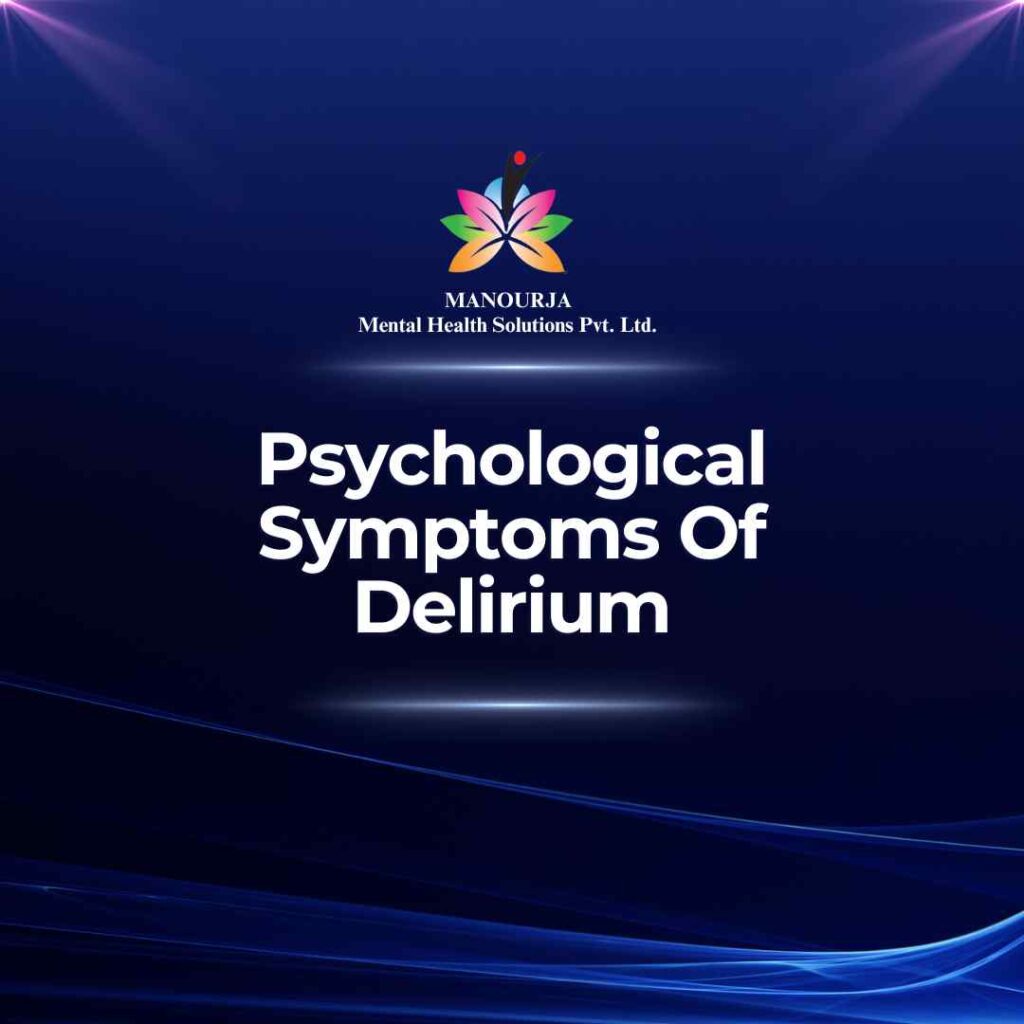Psychological Symptoms of Delirium

The psychological symptoms of delirium encompass a range of cognitive disturbances and alterations in mental function. These symptoms can vary in severity and may include:
- Confusion: Individuals with delirium often experience confusion and disorientation. They may have difficulty understanding their surroundings, recognizing familiar people, or recalling recent events.
- Disorganized Thinking: Delirium can lead to fragmented or disjointed thinking patterns. The affected individual may have trouble following conversations, maintaining logical reasoning, or expressing themselves coherently.
- Impaired Attention: A hallmark feature of delirium is impaired attention and concentration. Individuals may struggle to focus on tasks or conversations, frequently becoming easily distracted or unable to sustain attention for prolonged periods.
- Memory Impairment: Delirium can cause memory disturbances, particularly in terms of short-term memory. Individuals may have difficulty forming new memories or recalling recent events, leading to gaps in their recollection of recent experiences.
- Hallucinations: Some individuals with delirium may experience sensory hallucinations, perceiving sights, sounds, or sensations that are not actually present. These hallucinations can contribute to the individual’s confusion and distress.
- Delusions: Delusions, which are false beliefs that are firmly held despite evidence to the contrary, can also occur in delirium. These delusions may be paranoid in nature (e.g., believing that others are plotting against them) or related to identity (e.g., believing they are someone else).
- Agitation and Restlessness: Hyperactive delirium often involves increased psychomotor activity, including agitation, restlessness, and purposeless movements. Individuals may pace, fidget, or exhibit other agitated behaviors.
- Apathy and Withdrawal: In hypoactive delirium, individuals may display reduced psychomotor activity and responsiveness. They may appear lethargic, withdrawn, and uninterested in their surroundings.
These psychological symptoms of delirium can fluctuate in intensity throughout the course of the condition and are typically more pronounced during periods of heightened arousal or agitation. It’s important to recognize these symptoms promptly and seek medical evaluation and intervention, as delirium can indicate underlying medical issues that require attention.
At MANOURJA, we believe in the transformative power of counseling. Our experienced therapists offer a safe and supportive space where you can explore your thoughts, emotions, and challenges. Through personalized counselling sessions, we’ll work together to develop coping strategies, build resilience, and achieve lasting positive change. Discover the path to a healthier, happier you with MANOURJA counselling services.
MANOURJA Rehabilitation Services
At MANOURJA, we’re dedicated to helping you in rebuild your life, after difficult times. Our rehabilitation services focus on understanding what you need to move forward, whether you’re recovering from addiction, trauma, or any psychological – social challenges. We create personalized plans, that are all about helping you, regain your strength and find hope again. With a caring team by your side, you’ll have the support to make real progress and take steps toward a brighter, healthier future.
